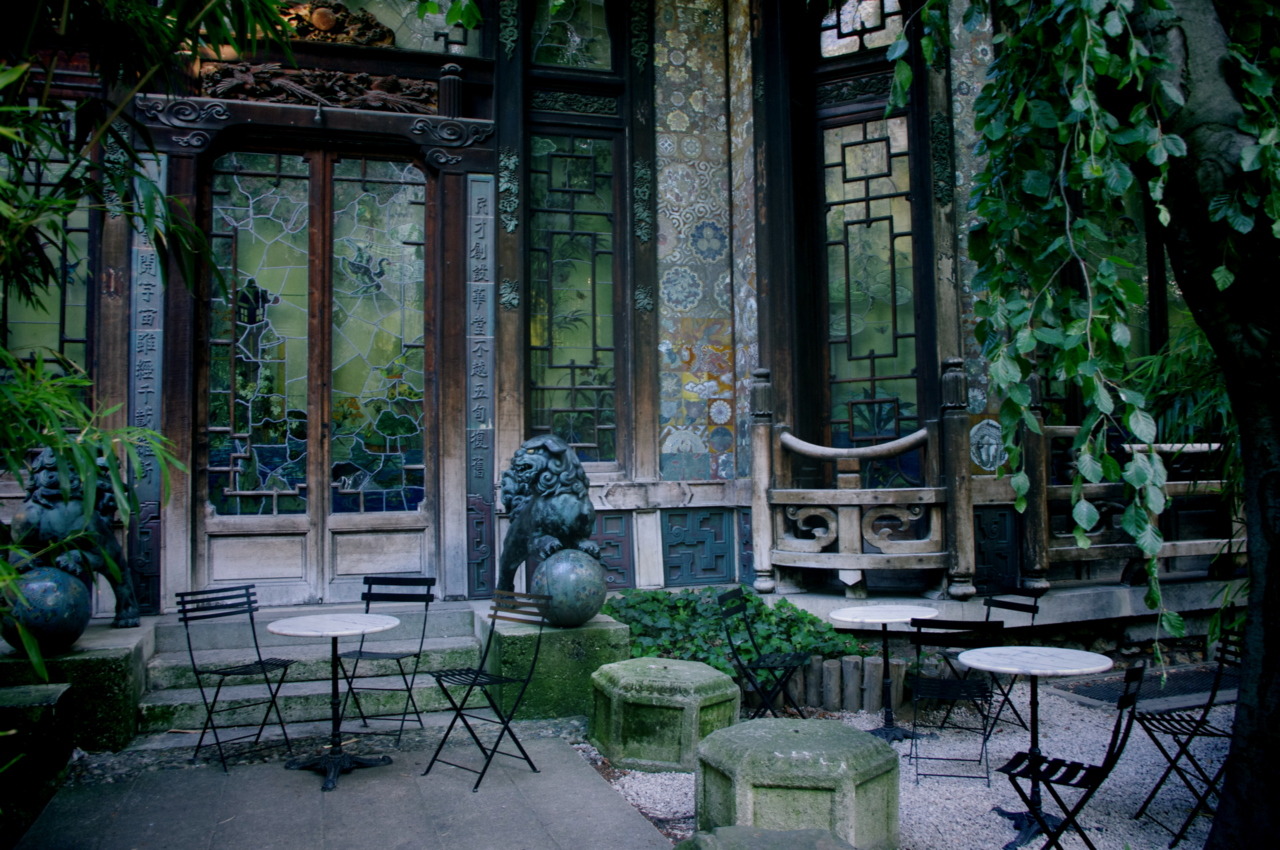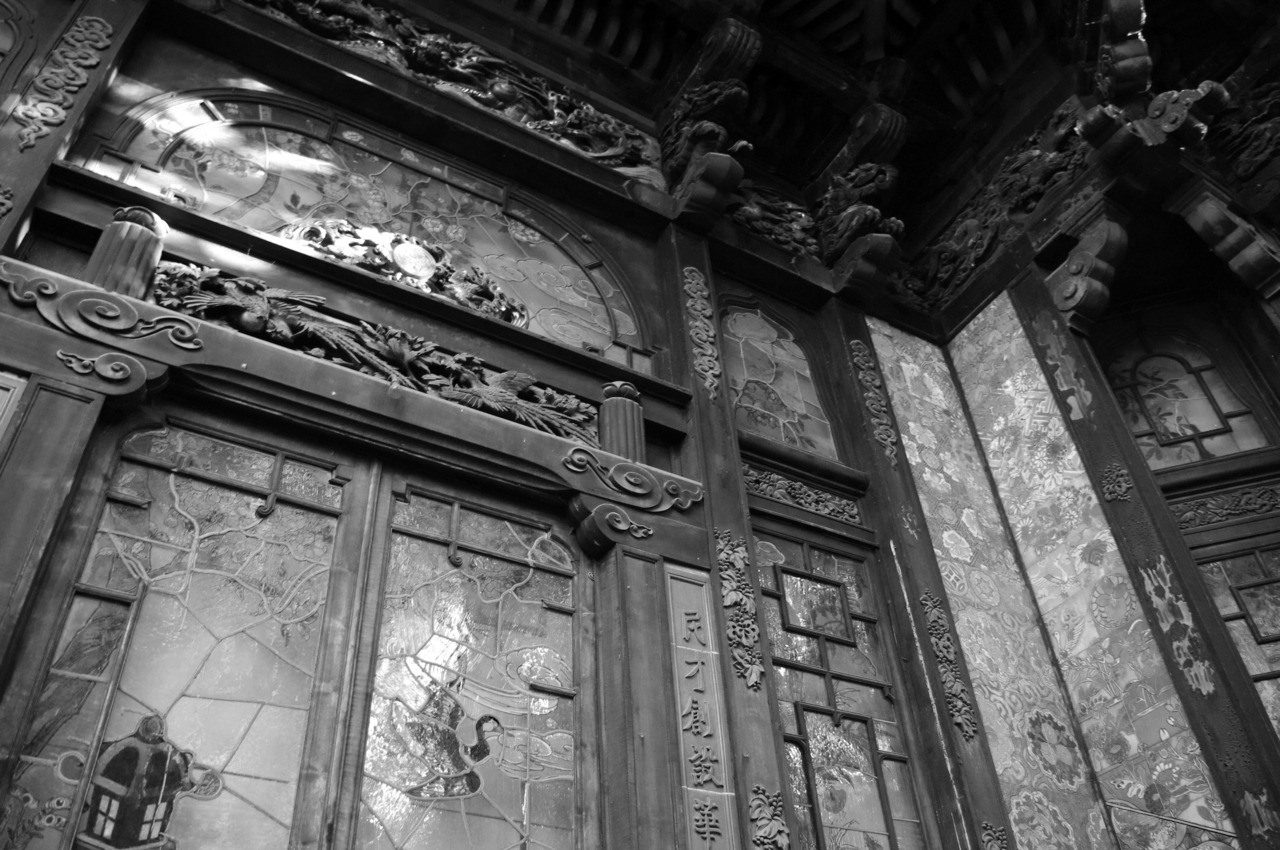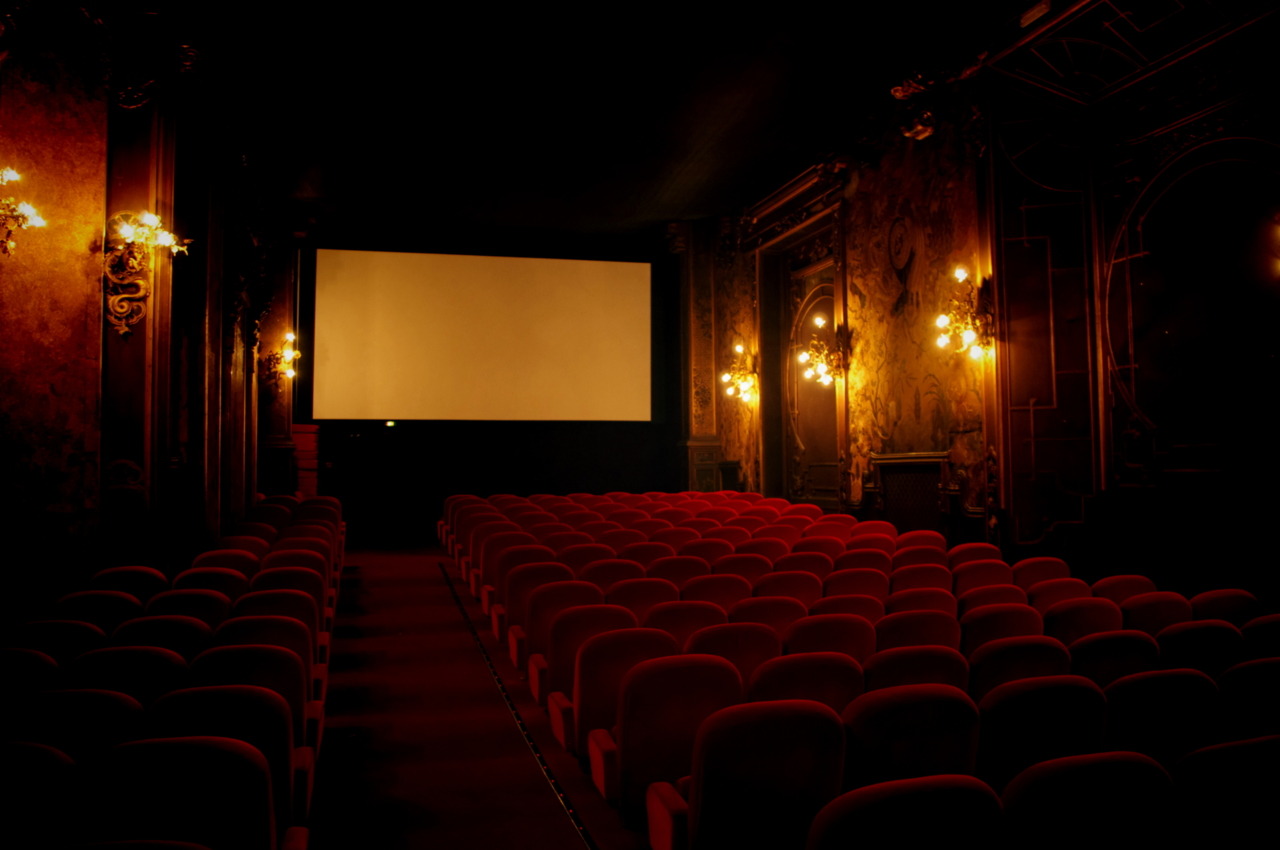I haven't written anything on this blog recently (though I have written on Len Lye and the Venice Biennial for NZ News UK and Docks en Seine for AngloINFO Paris), mostly as I've been really busy and also really tired -I barely managed to buy groceries today before curling up in a corner. Luckily, I had more energy when a friend visited last week. We ate pizza by the Canal Saint Martin, met goats at Versailles and were invited to (and attended) a fashion school défilé. We also went to see On The Road at La Pagode.
La Pagode is a small cinema housed in a pagoda. Doesn't just this description make you want to go right now? It completely lives up to expectations.
As is so often the case with things I like, La Pagode has a connection to Le Bon Marche. The director of the department store had it constructed, in 1898, as a gift for his wife. It wasn't enough to save their marriage, apparently, as she left him for his business partner in the same year. Nonetheless, she used the interior salon for entertaining up until 1927.
La Pagode became a cinema in 1931 and has played a big part in presenting cutting edge French cinema to the public. Jean Cocteau held the premiere of Testament d'Orphée here in 1959, and La Pagode played an important part in promoting the films of Ingmar Bergman and Sergei Eisenstein in France. Their programming remains interesting now, with this week's events including Pavel Koutecky's Le Citoyen Havel and a meeting of their monthly Japanese film screening and discussion group, this time centred on Linda Hoaglund's ANPO.
The cinema has been high on my Places To Visit list since I arrived in Paris, so I was really glad to read that they were showing On The Road. My friend and I got to the cinema slightly early so that we could look around before going into the film.
It wasn't as I expected, really. I had thought it would be a kitschy pagoda, a sort of novelty device, but it was actually really beautiful. There isn't a lot of space between the fence and the building, but they've done well fitting a lovely garden into the area in front of the pagoda and they've set some chairs there, creating quite a lovely little area to sit while waiting for the film. The trees also create lovely dappled light which plays very prettily upon the building.
The small space and the foliage make it hard to see the building in its entirety, and you can't walk around it, so I'm not sure of the overall form of the building's exterior. The details, though, are lovely. The details are beautiful, with subtle colours. There are lovely painted flowers alongside incredibly intricate carved wood. There's just the right amount of geometric framing that the sinuous shapes and natural imagery aren't overpowering.
There are two screening rooms inside, one of which is in the pagoda's original interior and the other of which is underneath it. On The Road was shown in the underground screening room, which is fairly plain.
While I haven't read the book, I thought On The Road was really, really good, both beautiful and very substantial. A copy of Swann's Way appears regularly in the film, and it seems an apt comparison, though the themes of On The Road are much heavier and more primal than Proust. I thought at the time it reminded me of the The Motorcycle Diaries and discovered only later that Walter Salles directed both films.
Afterward, though, we were able to go into the screening room in the pagoda, which was open for people who wanted to look inside. I really liked that they let you do this. As you can see in the photo above, the screen looks a little out of place in the ornate interior, but in the best possible way. I imagine it would add an extra beauty to whatever was on the screen. The light fixtures snaking up the walls are so beautiful.
Marcus Loew noted early in the twentieth century, before La Pagode was a cinema, that "people buy tickets to theatres, not movies". This cinema is a reminder of just how incredible a place to see films can be, but it's also very understated, as I didn't expect prior to visiting. As with On The Road, La Pagode is beautiful in a substantial, not superficial, way. It's also a reminder that I need to see more cinemas in Paris while I'm living here. Tomorrow, perhaps, I will buy a ticket to visit the Grand Rex, Paris's most famous cinema, which I expect will be spectacular in an entirely different way.



